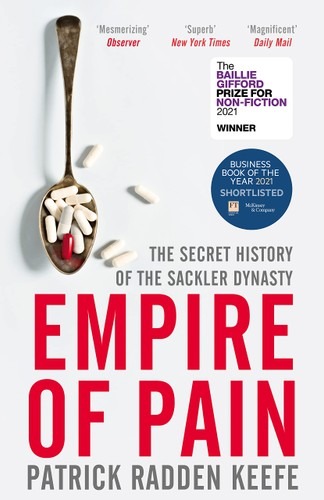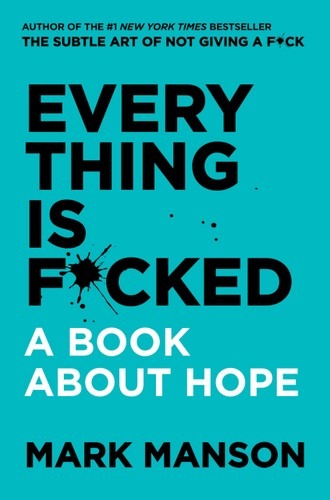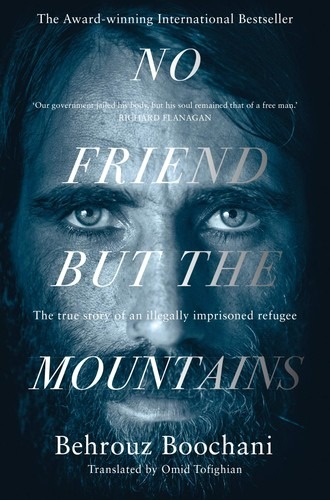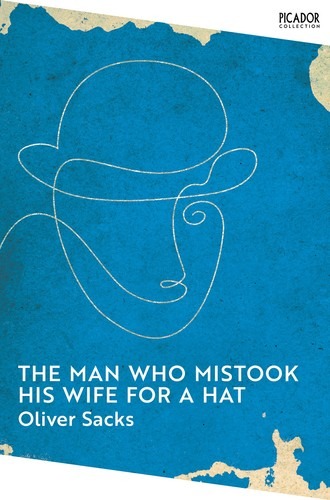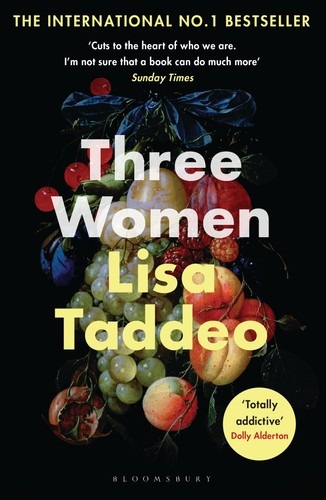Right Kind of Wrong: Why Learning to Fail Can Teach Us to Thrive
3.900,00 د.ج
We All Fail Sometimes. Now, A World-leading Harvard Professor Reveals How These Failures Can Lead Us To Happier, More Successful Lives – Provided We Know How To Learn From Them. We Used To Think Of Failure As A Problem, To Be Avoided At All Costs. Now, We’re Often Told That Failure Is Desirable – That We Must ‘fail Fast, Fail Often’. The Trouble Is, Neither Approach Distinguishes The Good Failures From The Bad. As A Result, We Miss The Opportunity To Fail Well. Here, Amy Edmondson – The World’s Most Influential Organisational Psychologist – Reveals How We Get Failure Wrong, And How To Get It Right. She Draws On A Lifetime’s Research Into The Science Of ‘psychological Safety’ To Show That The Most Successful Cultures Are Those In Which You Can Fail Openly, Without Your Mistakes Being Held Against You. She Introduces The Three Archetypes Of Failure – Simple, Complex And Intelligent – And Explains How To Harness The Revolutionary Potential Of The Good Ones (and Eliminate The Bad). And She Tells Vivid Stories Ranging From The History Of Open Heart Surgery To The Columbia Space Shuttle Disaster, All To Ask A Simple, Provocative Question: What If It Is Only By Learning To Fail That We Can Hope To Truly Succeed?
We All Fail Sometimes. Now, A World-leading Harvard Professor Reveals How These Failures Can Lead Us To Happier, More Successful Lives – Provided We Know How To Learn From Them. We Used To Think Of Failure As A Problem, To Be Avoided At All Costs. Now, We’re Often Told That Failure Is Desirable – That We Must ‘fail Fast, Fail Often’. The Trouble Is, Neither Approach Distinguishes The Good Failures From The Bad. As A Result, We Miss The Opportunity To Fail Well. Here, Amy Edmondson – The World’s Most Influential Organisational Psychologist – Reveals How We Get Failure Wrong, And How To Get It Right. She Draws On A Lifetime’s Research Into The Science Of ‘psychological Safety’ To Show That The Most Successful Cultures Are Those In Which You Can Fail Openly, Without Your Mistakes Being Held Against You. She Introduces The Three Archetypes Of Failure – Simple, Complex And Intelligent – And Explains How To Harness The Revolutionary Potential Of The Good Ones (and Eliminate The Bad). And She Tells Vivid Stories Ranging From The History Of Open Heart Surgery To The Columbia Space Shuttle Disaster, All To Ask A Simple, Provocative Question: What If It Is Only By Learning To Fail That We Can Hope To Truly Succeed?
| Editeur |
|---|
Produits similaires
Everything Is F*cked: A Book About Hope
“Just because everything appears to be a mess doesn’t mean you have to be one. Mark Manson’s book is a call to arms for a better life and better world and could not be more needed right now.” — Ryan Holiday, bestselling author of The Obstacle is the Way and Ego is the Enemy
From the author of the international mega-bestseller The Subtle Art of Not Giving A F*ck comes a counterintuitive guide to the problems of hope.
We live in an interesting time. Materially, everything is the best it’s ever been—we are freer, healthier and wealthier than any people in human history. Yet, somehow everything seems to be irreparably and horribly f*cked—the planet is warming, governments are failing, economies are collapsing, and everyone is perpetually offended on Twitter. At this moment in history, when we have access to technology, education and communication our ancestors couldn’t even dream of, so many of us come back to an overriding feeling of hopelessness.
What’s going on? If anyone can put a name to our current malaise and help fix it, it’s Mark Manson. In 2016, Manson published The Subtle Art of Not Giving A F*ck, a book that brilliantly gave shape to the ever-present, low-level hum of anxiety that permeates modern living. He showed us that technology had made it too easy to care about the wrong things, that our culture had convinced us that the world owed us something when it didn’t—and worst of all, that our modern and maddening urge to always find happiness only served to make us unhappier. Instead, the “subtle art” of that title turned out to be a bold challenge: to choose your struggle; to narrow and focus and find the pain you want to sustain. The result was a book that became an international phenomenon, selling millions of copies worldwide while becoming the #1 bestseller in 13 different countries.
In Everthing Is F*cked, Manson turns his gaze from the inevitable flaws within each individual self to the endless calamities taking place in the world around us. Drawing from the pool of psychological research on these topics, as well as the timeless wisdom of philosophers such as Plato, Nietzsche, and Tom Waits, he dissects religion and politics and the uncomfortable ways they have come to resemble one another. He looks at our relationships with money, entertainment and the internet, and how too much of a good thing can psychologically eat us alive. He openly defies our definitions of faith, happiness, freedom—and even of hope itself.
With his usual mix of erudition and where-the-f*ck-did-that-come-from humor, Manson takes us by the collar and challenges us to be more honest with ourselves and connected with the world in ways we probably haven’t considered before. It’s another counterintuitive romp through the pain in our hearts and the stress of our soul. One of the great modern writers has produced another book that will set the agenda for years to come.
The Future of Geography
the new frontier, a wild and lawless place. It is already central to communication, economics, military strategy and international relations on Earth. Now, it is the latest arena for human exploration, exploitation – and, possibly, conquest. We’re heading up and out, and we’re taking our power struggles with us. China, the USA and Russia are leading the way.
From physical territory and resources to satellites, weaponry and strategic choke points, geopolitics is as important in the skies above us as it is down below. If you’ve ever wondered if humans are going back to the Moon, who will benefit from exploration or what space wars might look like, the answers are here.
With all the insight and wit that have made Tim Marshall the UK’s most popular writer on geopolitics, this gripping book shows how we got here and where we’re going, covering great-power rivalry; technology; commerce; combat in space; and what it means for all of us down here on Earth. This is essential reading on power, politics and the future of humanity.
No Friend but the Mountains: The True Story of an Illegally Imprisoned Refugee
In 2013, Kurdish journalist Behrouz Boochani sought asylum in Australia but was instead illegally imprisoned in the country’s most notorious detention centre on Manus Island. He has been there ever since. This book is the result.
Behrouz Boochani spent nearly five years typing passages of this book one text at a time from a secret mobile phone in prison. Compiled and translated from Farsi, they form an incredible story of how escaping political persecution in Iran, he ended up trapped as a stateless person. This vivid, gripping portrait of his years of incarceration and exile shines devastating light on the fates of so many people as borders close around the world.
No Friend but the Mountains is both a brave act of witness and a moving testament to the humanity of all people, in the most extreme of circumstances.
'A brilliant book. No Friend but the Mountains can rightly take its place on the shelf of world prison literature . . . It is a profound victory for a young poet who showed us all how much words can still matter.' - Richard Flanagan, Booker Prize winning author of The Narrow Road to the Deep North
Musicophilia: Tales of Music and the Brain
The Man Who Mistook His Wife for a Hat
If a man has lost a leg or an eye, he knows he has lost a leg or an eye; but if he has lost a self – himself – he cannot know it, because he is no longer there to know it.
In this extraordinary book, Dr. Oliver Sacks recounts the stories of patients struggling to adapt to often bizarre worlds of neurological disorder. Here are people who can no longer recognize everyday objects or those they love; who are stricken with violent tics or shout involuntary obscenities, and yet are gifted with unusually acute artistic or mathematical talents. If sometimes beyond our surface comprehension, these brilliant tales illuminate what it means to be human.
A provocative exploration of the mysteries of the human mind, The Man Who Mistook His Wife for a Hat is a million-copy bestseller by the twentieth century's greatest neurologist.
Part of the Picador Collection, a series showcasing the best of modern literature.
Three Women: A BBC 2 Between the Covers Book Club Pick
All Maggie wanted was to be understood. How did she end up in a relationship with her teacher and then in court, a hated pariah in her small town?
All Sloane wanted was to be admired. How did she end up a sexual object of men, including her husband, who liked to watch her have sex with other men and women?
Three Women is a record of unmet needs, unspoken thoughts, disappointments, hopes and unrelenting obsessions.



